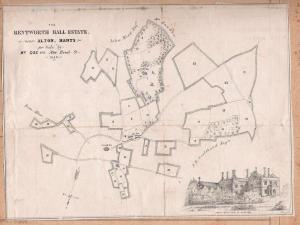SEVILLE, Spain (Reuters) - Andalusia's sunny beaches, shady plazas and flamenco dancing attract millions of northern European visitors each year but the southern region has become symbolic of Spain's decline and its small businesses are paying the price.
Nearly one in 10 of Andalusia's companies has closed in the last three years and more than 80 percent of those remaining are tiny, with less than three employees.
This makes them particularly vulnerable to the economic slump caused by a 2008 property crash, a banking crisis and growing concern over the future of the euro zone.
After growing faster than the national average for more than a decade, Andalusia is slumping faster than the rest of Spain and is stuck with massive unemployment and growing poverty.
Local authorities say they don't plan to follow Valencia and ask for a central government bailout. While Andalusia has one of the country's highest debt levels, it is also the most populous region with the lowest debt-per-person ratio.
However, with its economy expected to shrink this year and next, pressure to slash its deficit and no access to credit markets, doubts linger about how it can refinance some 1.6 billion euros of debt by the end of the year without help.
Since the real estate boom years ended, Andalusia has survived almost entirely on tourism and agriculture.
Parked in front of a centuries-old bullring on the banks of the Guadalquivir river, Juan Zabala Franco, 44, who has been offering visitors horse and cart rides around the city for 25 years, can't remember such a quiet summer.
"Tourism right now is a disaster. There was an explosion of money as the banks lent to everyone, and now we're paying for that," he said, offering a half-price ride to a Spanish family.
"Families come here on package holidays, with their little paper bracelets and all included. They don't have a budget for anything else."
The story is the same in the bars and restaurants surrounding the Cathedral, the world's oldest gothic church, with empty tables at the Bar Giralda.
"Many don't spend and would rather buy lunch from a supermarket than eat in a restaurant," says Yusef Najib, a waiter at the Giralda since 2006. "Before, this bar would take in 5-6,000 euros a day. We're lucky if we make half that now."
ACCELERATED DEVELOPMENT
For a quarter of a century, Andalusia gorged on European Union funds that helped it blossom from a backwater with a high illiteracy rate, paying for high-speed rail lines, thousands of km (miles) of highways, modern schools and universities.
Much of this bonanza was negotiated by the region's favorite son, former Socialist Prime Minister Felipe Gonzalez, who signed Spain's accession treaty in 1985 and brought an extravagant world fair to his home town, Seville, in 1992.
EU funds accounted for one-third of all investments in the region in 1996 but only 12.3 percent by 2008, according to the OECD. They run out next year, and their loss will only add to growing pressure on the region.
Andalusia was sucked into the property fever and grew fast as cheap money poured into concrete especially along its hundreds of km of once-pristine coastline.
The construction industry has collapsed and gross domestic product per capita is now 17,587 euros, one of the lowest in the country, compared to 31,288 euros in the industrialized northern Basque Country region and an EU average of 25,134 euros.
One in every three workers in Andalusia is now unemployed, compared to a national average of nearly one in four. Some 7.5 percent of all the jobless in the euro area live here.
Almost 30 percent of the region's residents live below the poverty line, compared to the national average of 19.5 percent.
"Every day we hear worse news about data and risk premiums and that has pushed people from fear to panic," said Seville Business Confederation president Miguel Rus Palacios.
Palacios, whose office is in the orange-tree-lined centre of Seville, says he has been criticized for his outright views, but needs to speak his mind.
"Businesses must make some very difficult decisions to define their own futures. Our project, as a country, is just not viable and we can't carry on like this."
Andalusia is only one of three regions the Socialists managed to hold this year after losing national power when they were trounced by Prime Minister Mariano Rajoy's conservatives in a general election last November. They blame his austerity measures aimed at reducing the deficit for worsening the crisis.
"No one will ever grow through Rajoy's policies. How can we grow with these cuts? We agree with cuts, but not with these cuts," says Pepe Caballos, economy secretary for the Socialists in Andalusia's parliament.
"To rise from this crisis, we need to change the model of productivity, invest in it, invest in research."
The conservatives accuse the Socialists in Andalusia of having squandered boom-year revenues on an inflated bureaucracy designed to keep themselves in power indefinitely.
NO LENDING
Spanish banks, laden with bad debts from the housing crash and the ensuing recession, have run into trouble.
Europe has agreed to provide up to 100 billion euros to bail them out but economists say it will be a while before they start handing out the loans essential to kick-start growth.
Only companies with their own funding can survive.
Ana Molina, 31, is visiting Seville to check on the viability of opening a high street shop for her newly launched online erotic toy store.
Molina's business has had no help from the government or lenders, even though she says that the online shop is growing quickly and a physical store front would thrive as the first of its kind in the conservative city.
"In fact, I've had the door closed in my face," she said. "I've looked for funding, but the banks won't touch you unless you already have 10,000 euros as a guarantee, which I don't - that's why I'm asking for a loan."
BRAND SPAIN DAMAGED
Escaping the domestic market and branching out in to new, untapped businesses is the only way to grow in the current economic climate, said Alvaro Falcon, 28, who sells artificial ice rinks from a sweltering, dusty business park near Seville.
Started in 2004, XtraIce began exporting three years later, just as Spain's economy began to topple in to the worst slump in decades, and now installs rinks worldwide including the highest, on Chicago's Hancock Tower, and the largest, in Japan.
XtraIce now sells to 53 countries and is one of the few success stories in a region reeling from recession.
But Spain's position at the heart of the euro zone's economic problems is creating problems even for an innovative company like XtraIce.
"Over the last three months, since talk of Spain needing aid began, 'Brand Spain' has been very badly damaged," said Falcon's business partner, Adrian Ortiz. "When we're doing business, a potential partner would prefer to work with a German than a Spaniard due to the image of security it brings with it."
Exports were the only economic driver in Spain last year. In Andalusia alone, exports rose almost 22 percent in 2011 as local businesses redirected their markets abroad, something the local government is promoting heavily.
Constructor Impulsa has managed to thrive by selling to countries where founder Ismael Mora Avila says Spanish know-how is still valued, diversifying away from the dire home market.
"In 2008, there would be only four businessman sitting with me on flights to Algeria. Today, these flights are full of Spanish businesses trying to get out," he said.
(Editing by Barry Moody, Anna Willard and Paul Taylor)
Source: http://news.yahoo.com/andalusias-small-business-crushed-spanish-slump-144101201--business.html
redskins bachelor finale courtney robertson ben flajnik randy moss randy moss hunger games premiere






 Two Texas girls--ages 12 and 13--were arrested earlier this month and charged with online impersonation, a third-degree felony, for creating a fake Facebook account under the name of another student at their school.?
Two Texas girls--ages 12 and 13--were arrested earlier this month and charged with online impersonation, a third-degree felony, for creating a fake Facebook account under the name of another student at their school.?





